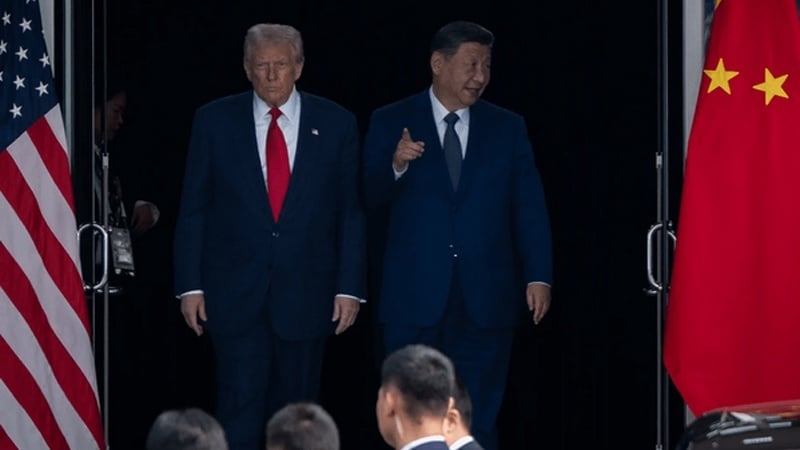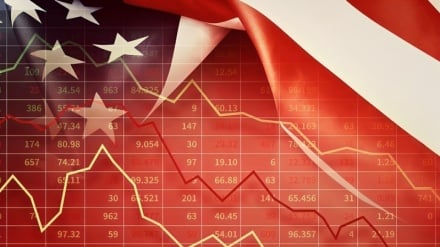Xi’s tactic in war with U.S.: Let Trump claim victory
-

Presidents of U.S. and China
Pars Today – By refraining from purchasing soybeans and exporting rare elements, China avoided the delayed impact of Trump’s tariffs and export controls without giving away significant concessions in return.
The New York Times, in a report on the meeting between the presidents of the U.S. and China in Busan, wrote: “The Art of Letting Trump Claim a Win, While Walking Away Stronger.” According to Pars Today, the New York Times notes that the recent meeting between Xi Jinping and Donald Trump in South Korea clearly demonstrated that Beijing now stands before Washington with renewed confidence.
Relying on China’s monopoly over critical resources and its immense purchasing power in the global market, the Chinese president succeeded in securing significant concessions from the United States — ranging from tariff reductions to the suspension of U.S. technology export restrictions to Chinese companies.
Under the announced agreement, Washington will reduce its tariffs on Chinese goods from 57% to around 47%, suspend port fees for Chinese ships, and delay the implementation of new export controls against Chinese technology companies. In return, Beijing agreed to suspend its recent restrictions on rare earth exports for one year — critical materials essential for the production of nearly all modern technologies, from mobile phones to military missiles.
China projects the image of a major power
The New York Times further wrote that in this way, China was able to secure economic concessions while also projecting the image of a decisive and influential power. Many analysts in Washington view this outcome as a sign of a new balance of power between the two countries.
Julian Guertz, a former U.S. National Security Council official, said, “China has shown that it can boldly and skillfully leverage its tools to extract any concession from the United States.” At the Busan meeting, Xi Jinping, in a tone resembling that of a teacher addressing Trump, stated that “the recent twists and turns of the trade war should be instructive for both sides.”
He added that the two countries must “consider the bigger picture” and avoid falling into a cycle of economic retaliation. He was referring to the past year, during which both sides inflicted damage on each other through waves of tariffs, sanctions, and export restrictions. A few weeks ago, Beijing, by announcing strict limits on rare earth exports, effectively cornered Washington. This move could have paralyzed American industries ranging from advanced technology to green energy. According to experts, this very threat was a decisive factor in the Trump administration’s retreat.
On the surface, both leaders emerged from the meeting with gains. Trump was able to present the reduction in tariffs and the increase in U.S. agricultural exports — especially soybeans — to China as “a victory for American farmers.” On his return to Washington, he climbed the steps of Air Force One with a clenched fist and posted on his social media: “Our farmers will be very happy! Thank you, President Xi!”
He also announced that China had pledged to take further action to prevent the export of raw materials used to produce fentanyl to the United States. A statement from China’s Ministry of Commerce also noted that the October restrictions on rare earth exports would be temporarily suspended. However, experts believe that Beijing holds the upper hand in this trade war, as the Trump administration lacks a coherent strategy for achieving its ultimate objectives.
Jonathan Tsien, a researcher at the Brookings Institution and former CIA analyst, said: “Trump’s policy is tactics without strategy. China has skillfully imposed a game of strikes and retreats on the United States.” Interestingly, China’s official statement on this meeting made no mention of Taiwan — a topic that is usually raised in all high-level meetings between Beijing and Washington. Observers view this silence as a subtle concession by China, possibly part of an effort to maintain a positive atmosphere following the talks.
Fragile peace between Beijing and Washington
According to analysts, although the Busan agreement is temporary, it imposes at least a fragile calm on the relations between the two powers in the short term. Trump has announced that the two countries will also cooperate on ending the war in Ukraine, and he plans to visit China in April — a trip that will coincide with Xi Jinping’s reciprocal visit to the United States. During the meeting, both leaders sought to create a positive atmosphere by displaying personal warmth.
Xi Jinping stated that China’s development aligns with “the President’s vision of making America great again.” Trump, in turn, called him “the great leader of a great country” and “a dear friend.” According to Lizzy Lee, a researcher at the Asian Policy Institute, “This type of personal diplomacy aligns perfectly with the instincts of both leaders and currently seems to lay the groundwork for managed stability between the two countries.” However, this fragile ceasefire could be undone by any sudden action from either side.
A case in point was last month, when Washington barred a new list of Chinese companies from accessing U.S. technology — a move that was quickly met with Beijing’s threat to halt rare earth exports. Trump had even threatened, just days before the Busan meeting, that he would cancel the summit and impose additional tariffs if Beijing did not lift the restrictions.


